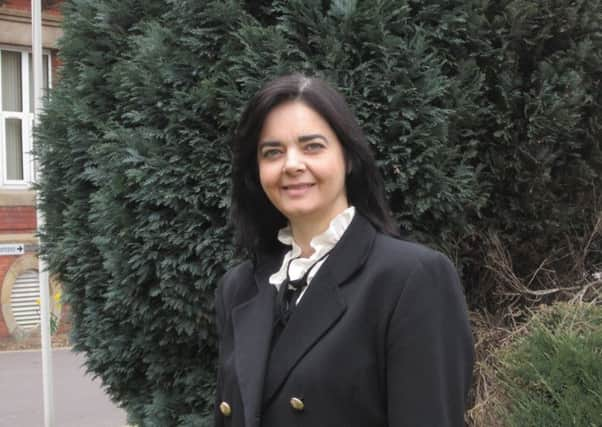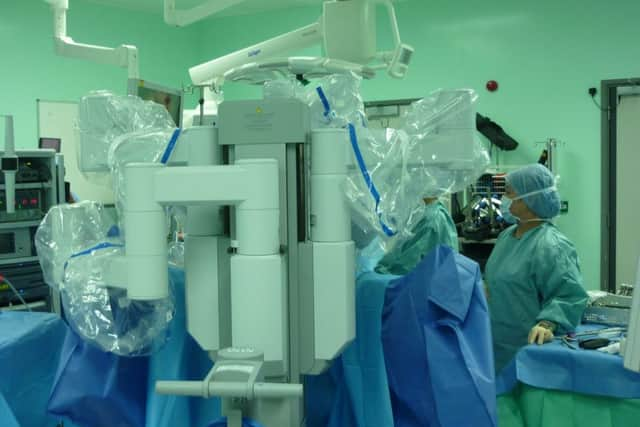Yorkshire heart transplant patient has robotic hysterectomy in '˜world first'


Nicola Dixon, from Everton, Doncaster, underwent the pioneering operation using a Da Vinci surgical robot at Sheffield’s Royal Hallamshire Hospital earlier this year.
There are no other cases recorded in medical literature of such a procedure ever having been performed on a woman who has previously undergone a heart transplant.
Advertisement
Hide AdAdvertisement
Hide AdMrs Dixon, 46, needed a hysterectomy because she was suffering from heavy and debilitating periods following a heart transplant she had in 2002, which itself was brought on by heart muscle disease cardiomyopathy.


Robotic surgery is performed through incisions in the abdomen, making it less invasive than traditional surgery, resulting in less blood loss and a lower risk of infection.
“The transplant had given me a quality of life which this issue was now destroying,” Mrs Dixon said. “I was losing lots of blood and having extremely painful periods to the point where I often could not go out of the house.
“I had tried numerous treatments which didn’t work for me and due to my medical history there were other treatments which I was unable to have. This meant my only option left was a hysterectomy. I knew my heart was in a good condition to have the operation, and alongside the fact that the issue could have got worse when I hit the menopause, I decided I had to bite the bullet and get it done.”
Advertisement
Hide AdAdvertisement
Hide AdShe had her uterus and cervix removed but retained her ovaries as they produce the hormone oestrogen which can help to protect the heart.


Consultant gynaecological oncologist Fiona Kew operated the Da Vinci machine during the procedure using a series of intuitive pedals and joysticks.
Limiting blood loss during the operation was extremely important as transplanted hearts do not respond as quickly as normal hearts.
The heartbeat is controlled by the nervous system and adrenaline, and a normal heart will respond to changes such as blood loss by instantly pumping harder but transplanted hearts are not wired up to the nervous system in the same way, meaning they do not respond as quickly.
Advertisement
Hide AdAdvertisement
Hide AdMrs Dixon has made a full recovery from the 75-minute procedure and was allowed to return home after just one night in hospital.
The keen golfer’s debilitating period-related migraines have now disappeared and she hopes to be back on the fairways this summer.
Mrs Dixon said: “It has made a massive difference and the recovery period has been miles better than I thought it would be.
“I am mad about golf and getting fit to play again has been a real target for me.”
Advertisement
Hide AdAdvertisement
Hide AdShe continued: “I was stunned when Fiona told me this was the first operation of its type. It is really amazing. I would not discourage anyone in a similar position from going for it.”
Miss Kew is planning to write up the case and have it published in a medical journal. She added: “It [writing up her findings] will enable other surgeons to have that learning knowledge.
“But I think it also shows other transplant patients that they can get on and receive the medical care they need and still live a relatively normal life.”